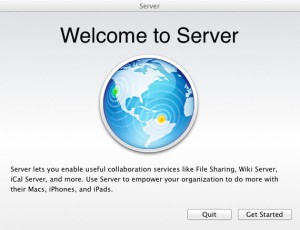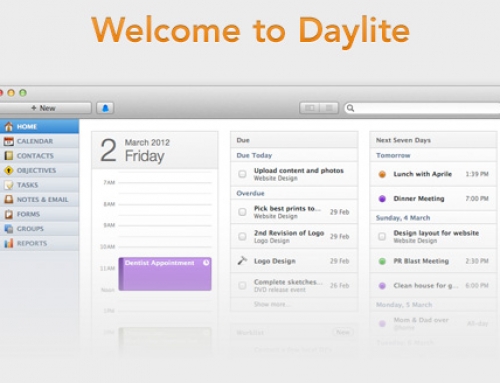 Preparing for Lion is our new series that will help you transition to Mac OS 10.7 Lion. We’ll be adding more articles all the time, so be sure to come back and take a look. If you’d like to see all of the Lion materials, click Preparing for Lion.
Preparing for Lion is our new series that will help you transition to Mac OS 10.7 Lion. We’ll be adding more articles all the time, so be sure to come back and take a look. If you’d like to see all of the Lion materials, click Preparing for Lion.
Rumors are floating around that with Mac OS 10.7 Lion, companies will buy the regular operating system and then download the server add-on from the Mac App Store. The download will install all of the server software onto the computer then “flip the switch” making your regular computer into a server.
Let’s remember, this is merely a rumor started by MacBidouille (aka Hardmac – a French Apple news blog). One of their readers typed, “install server” into the Lion help menu. He found a brief help article about installing the Server Essentials software from the Mac App Store.
Please continue reading this article to see why this could be painful… and what Apple could do to fix it.
Any purchases made from the Mac App Store require an iTunes Account. The Mac App Store is great for consumers, but asking larger companies to create an iTunes Account so they can enable the Server version of the Operating System seems like a huge failure to me. Will large companies do it? Maybe… if they really want a Mac server.
That brings me to another point: developers that are selling their software exclusively through the Mac App Store are completely missing a fast-growing market. Large companies switch to Mac-based solutions everyday. Apps like Pixelmator (a feature-limited Photoshop replacement) have decided to sell their software on the Mac App Store… and nowhere else. Since you can only activate an iTunes account on five computers at a time, a large company would have to create a new iTunes account and enter new credit card information for every five computers that needed the software. Yikes.
Imagine if a 50-person marketing firm wanted to use Pixelmator as their editing software. They would need 10 different iTunes accounts and 10 different credit cards available to install the application on each machine. That’s never going to happen. Ever.
What could Apple do to fix this? Three words: Enterprise iTunes Accounts.
From this point forward, this is all my speculation and there’s no evidence that Apple would do anything like this.
A large company could pay Apple a yearly fee to gain access to enterprise pricing on the Mac App Store and an increase in machine activations for their iTunes account — $500 a year for 25 machines, $1000 for 50 machines, and so on. Once they have that access, they could purchase bulk licenses of Mac App Store applications at a nice discount and tie them all to one Enterprise iTunes Account. After that, every machine in the company works with the Mac App Store.
Let’s take it one step further: it would be a nightmare if an enterprise company’s iTunes account password made it into the hands of the employees. It would also be difficult for an IT guy to keep everyone’s machines current if they had to manually type in the password into each machine.
So how do you fix that? Just two words this time: permission levels.
If an Enterprise iTunes account had some sort of administrator configuration panel, they would be able to push out new app installations, app updates, permission levels, etc. – something similar to the way Apple Remote Desktop functions. Setting up multiple passwords with different permission levels would also help streamline the situation as well: one admin password with permission to buy and update, one user password that activates the account on the computer and downloads all of the current software.
Obviously, this is just my take on the situation… I’ve only spent a couple minutes thinking about it but it’s definitely something that should make its way to the enterprise market.
One of my colleagues here at MacWorks (thanks, Tim) reminded me that the terms of use for the Mac App Store explicitly state that it’s for consumers only. Macs are making their way into the enterprise market; it would be shameful if Apple didn’t try to foster that growth.
Hopefully, we’ll know more about the validity of these rumors in a few days. WWDC 2011 starts on Monday, June 6th. We’ll keep you updated with the news surrounding the event as it comes out.


